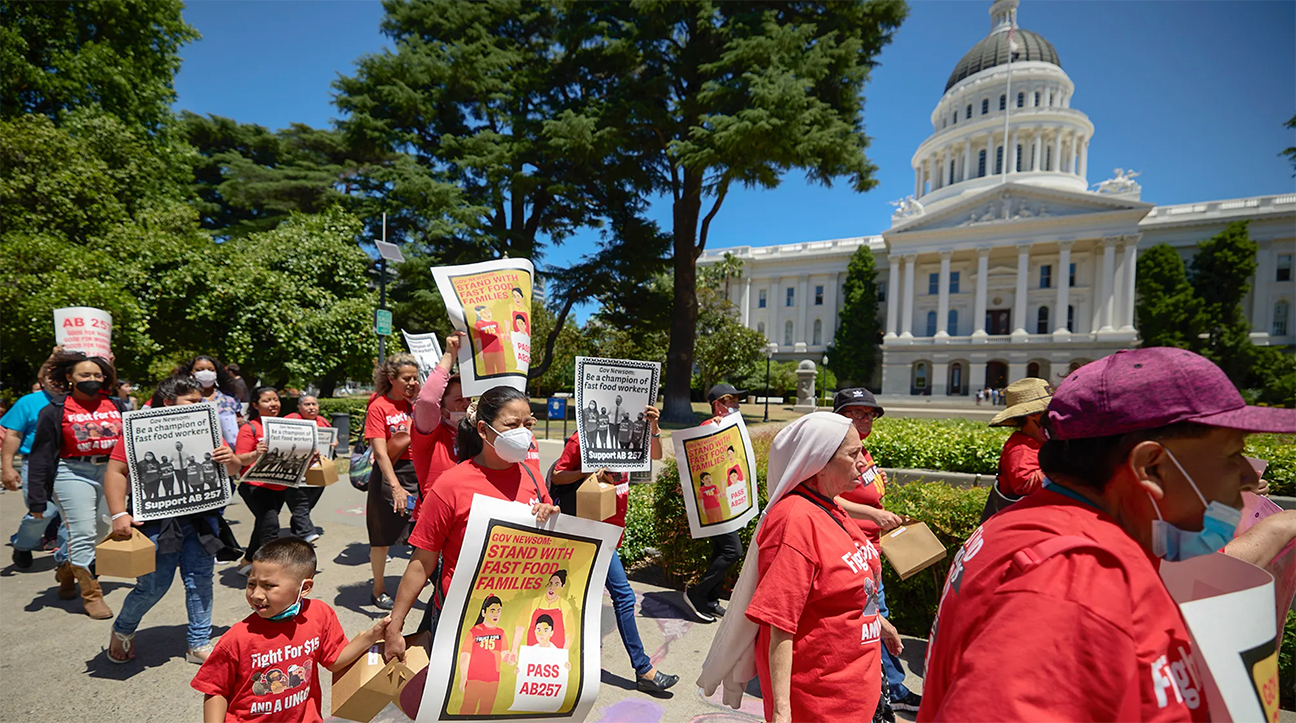California’s recent passage of AB 1228, a fast-food bill that sets a $20 wage floor for workers in fast-food chains with at least 60 locations nationwide, has sparked controversy and outrage among independent McDonald’s franchisees in the state. In a memo viewed by CNBC, an advocacy group representing over 1,000 McDonald’s owners called the National Owners Association (NOA) is warning of a “devastating financial blow” to franchisees and the potential for similar legislation to follow in other states.
Despite the bill’s promise of higher wages for workers, some franchisees and restaurant advocacy groups are deeply concerned about its implications for business operations, especially during a period of high inflation and labor market challenges. The NOA projects that AB 1228 will cost each McDonald’s restaurant in California a staggering $250,000 annually, a cost that it claims “simply cannot be absorbed by the business model.”
What’s more, the NOA alleges that a small coalition of franchisors, including McDonald’s, the National Restaurant Association (NRA), and the International Franchise Association (IFA), negotiated a deal with the Service Employees International Union (SEIU) behind closed doors, essentially ensuring the legislative outcome. This perceived lack of franchisee involvement has further fueled franchisees’ concerns.
In response to these developments, McDonald’s issued a letter to its restaurant system, acknowledging its efforts to fight the legislation and protect franchisees’ ability to make local decisions for their businesses. The company even planned to refer an earlier version of the bill to California voters in November 2024, an expensive and unexpected move it deemed necessary.

However, critics argue that the costs of this legislation will fall primarily on small business owners in the state. The NOA has outlined a series of requests to help alleviate the financial burden, including reinvesting the projected $80 million in rent and service fees collected from anticipated menu price hikes back into California restaurants.
Despite the contentious nature of this legislation, not all franchise and restaurant groups have taken a negative stance. The International Franchise Association CEO, Matt Haller, believes that the bill “creates the best possible outcome for workers, local restaurant owners, and brands,” while still protecting the franchise business model in California. Sean Kennedy, the EVP of Public Affairs for the National Restaurant Association, views the agreement as beneficial for California restaurant operators and a substantial investment in the quick-service restaurant workforce.
Worker advocates who initially pushed for even higher wages are not resting either. The Service Employees International Union (SEIU) President, Mary Kay Henry, stated that the fight in California is far from over. She emphasizes the need for a sector-wide approach that includes workers and franchisees in shaping improved industry standards, making fast-food jobs safer and more sustainable.
In the midst of this controversy, the fate of small business owners and franchisees hangs in the balance as they grapple with the potential financial consequences of AB 1228. While the bill seeks to improve the lives of fast-food workers, it has also ignited a contentious debate about its impact on the businesses that employ them, leaving many wondering whether the price of progress is too steep for those who have built their livelihoods in the fast-food industry.






